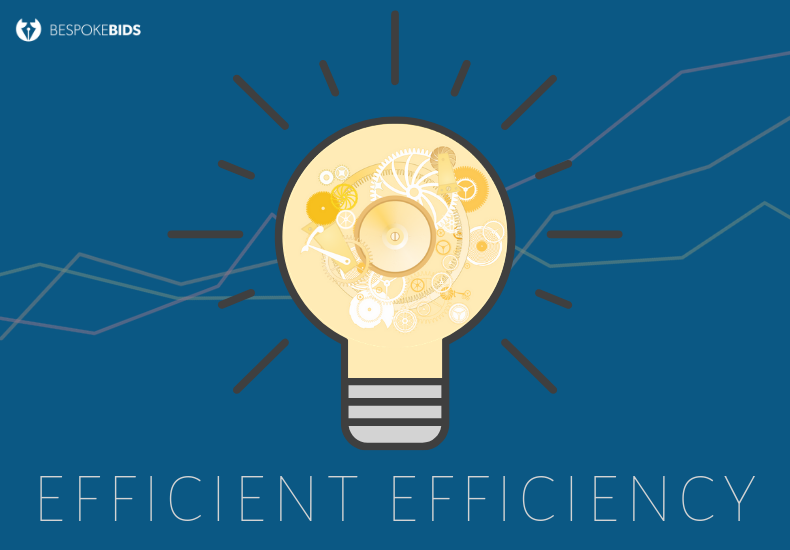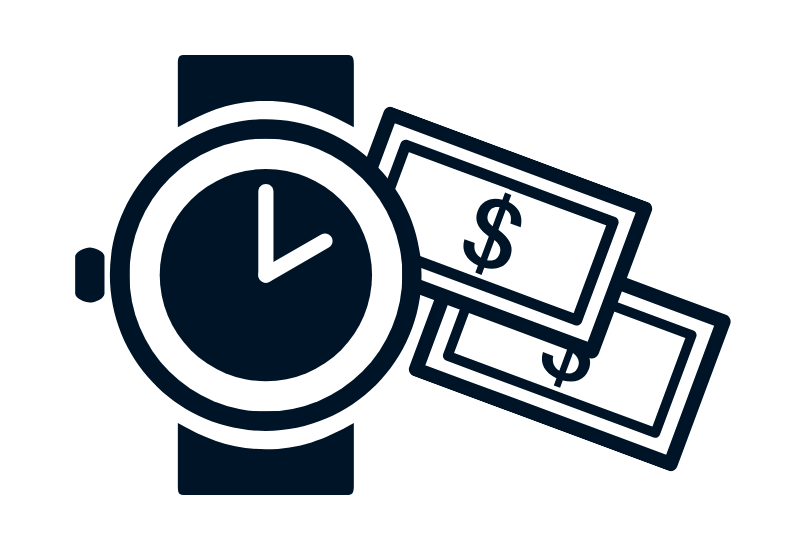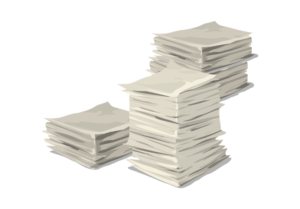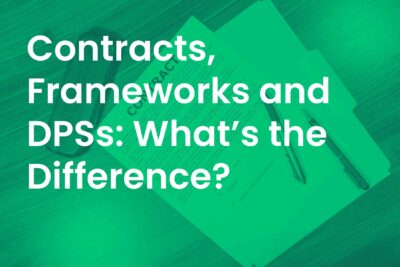
Most if not all things in life are done better if they are done efficiently. Wasted time, especially in business is wasted money and nowhere is this more the case than in bid management.
Inefficient bid processes can cost thousands if not millions in lost revenue and it is vital therefore to know how to optimise your bidding process for maximum efficiency.
The Benefits of Enhanced Efficiency
Save Time and Money

Efficient bidding is economical bidding. If you or your writers can finish a bid in 3 days rather than 6 (without sacrificing on quality), you’ve doubled your efficiency. You are then free to work on double the number of projects at half the cost on your time.
With an efficient bid process, you are free to apply for more bids. While quantity does not always mean quality, if you are consistently winning bids and writing capacity is more your issue, then efficient processes can work wonders.
Efficient working also ensures that you are able to continue the day-to-day operations of your business without being consumed by bid writing. This is vital if you not only want to win contracts but also retain them.
Win More Bids

If you can successfully optimise your bidding process, you can successfully apply for more tenders. Winning more bids is every bid manager’s dream and more wins means more revenue.
Simply put, if time or effort is unnecessarily wasted, so too is potential revenue.
How to Maximise Efficiency
Bid Libraries
If I had six hours to chop down a tree, I’d spend the first four hours sharpening the axe.
Abraham Lincoln
Our blog on the subject discusses the ins and outs of how and why to collate a good bid library. Not only can a good bid library drastically improve your overall bid quality, but it can also increase your efficiency.
Minimising wasted time on repeating small tasks is a cornerstone of efficient working and bid libraries help to achieve just that. Rather than writing and re-writing the same content for every single bid, a curated bank of well-written, tried and tested content which can be used as a baseline for all future responses is guaranteed to enhance efficiency and quality.
Preparation here is the key. You’re better off spending time on a good bid library now, than wasting time further down the line because you aren’t properly organised.
Maximise Time Spent
Don’t equate activity with efficiency
Harvey Mackay
When boiled down, efficiency simply comes down to maximising time spent and minimising time wasted. There are a number of ways by which to maximise your time. We’ve listed a few:
1. If you’re running through an SSQ and get stuck on a particular bit of information, mark it and come back later. Complete as much as you can first and then gather all the additional info in one go afterwards. Needlessly stopping and starting any process is far less efficient than compartmentalising individual sub-processes and doing each one in full.
2. Rather than sending an email to a colleague for a bit of information ask yourself “would this be easier face-to-face / on the phone?” or “can I find this out myself faster?“. If yes, don’t send an email.
3. Finish tasks as far as you can once you’ve started. Don’t gather your insurances / certificates / accounts without also re-naming them and zipping them up ready to submit. If you don’t do it now, you’ll have to do it later.
4. Arrange your documents and files as neatly as possible on your computer system. Clicking through a well-layered folder structure is faster that scouring a long list of random documents for the one you need. Structure your folders something like this:
- [Buyer Name] – [Bid Title] – [Submission Date]
- Tender Documents
- Important Documents
- Notes and Reference Documents
- Drafts
- Attachments
- SQ Draft
- ITT Draft
- Forms to Sign
- Final Submission
- Final Attachments
- SQ Response
- ITT Response
- Signed Forms
- Tender Documents
Cut out Wasted Time
There is nothing so useless as doing efficiently that which should not be done at all.
Cutting out wasted time is equally as important as maximising your useful time. The key here is to ask yourself: Do you need to do this in order to win this bid? If not, don’t do it, even if it’s efficient.
There are a number of tasks in bid writing which most probably needn’t be done. If you can’t justify the reason for doing it, don’t bother.
We’ve listed a few examples below:
Do you need to read this?

While all are important, you needn’t read every bid document from end to end. There is a certain level of common sense to be applied here, but if you’ve done an SQ before, you probably needn’t read it word-for-word before you go back to the start to fill it in.
Likewise, If you’re only applying for lot 1, don’t bother reading the scope for lots 2-10.
Do you need to print this?
Not only is printing quite environmentally unfriendly, it’s also expensive and time-consuming. Some people prefer to read paper than a screen which is fair enough, but you need to ask yourself if it’s worth it. If this is really an issue for you, perhaps purchase some anti-glare computer glasses, we hear they’re quite stylish!

Do you need this meeting?
It can be tempting – especially in multi-writer bid teams – to tend towards excessive bid meetings. On the whole however, we find that many if not most are unnecessary. Before calling a meeting, ask yourself whether everyone needs to attend, or whether your issue can be settled more quickly through email, or a quick chat with the relevant party.
Quick Tips
Don’t dwell on losses but learn from them.
There’s no use spending time dissecting your losses more than satisfying yourself that there has been no foul play in evaluation. By all means learn from your feedback and where you went wrong, but don’t dwell on mistakes for longer than it takes to learn from them and move on.
Don’t allow wins to make you cocky.
Just because you’ve achieved a win, don’t allow your focus or drive to diminish. Complacency or over confidence have lost companies many a vital contract. Don’t allow it to happen to you. Treat every bid with the same level of importance and don’t waste time revelling in your own success. Even if you win, you should read and learn from your feedback.
Learn your tools.
You computer (however old and slow) is a powerful tool with a range of features to help maximise your productivity and efficiency. Do your best to learn your way around it and how to use it properly.
Try to learn the basics of your system and how it works. Teach yourself keyboard shortcuts to reduce the amount of time spent switching between keyboard and mouse.
Try to optimise your menus, apps and shortcuts to improve your workflow. If there is one programme that you always need, make sure you don’t have to click through 4 menus twice a day to find it. Pin it to your toolbar, start menu or desktop for easy access.
Minimise your search and transition times by removing clutter and arranging apps and folders properly. Make sure you can always find what you need by arranging your folder structure so you can find things even if you forget where you left them. Give commonly used features higher priority in list or on your desktop and stick to a logical structure.
Don’t download anything directly to your desktop or downloads folders, but place them in the relevant folder, perhaps a ‘Live Bids’ or ‘Potential Bids’ folder.
Arrange your station and equipment for optimal efficiency.
As much as efficiency can be gained through optimisation of your digital space, perhaps more still can be gained through your physical. It’s vital to ensure that you are comfortable and that your physical workflow is optimised.
Ensure your chair / mouse / keyboard / monitor(s) are all set up properly and ergonomically. If you’re uncomfortable you’ll struggle to concentrate, work slower and perform worse.
Organise your desk. Is everything you need organised and to hand? If you have 2 monitors, make sure you have them arranged properly, too far apart and you waste time moving your head back and forth. Make sure your mouse is close enough. If it’s too far away, you’ll have to reach further to get to it. Small inefficiencies add up in the grand scheme of time.
Make sure your mouse pointer isn’t too fast or too slow. Most modern computer mice allow you to adjust cursor speed. Too fast and you’ll miss your target more often than not, too slow and it’ll take you an age to get there in the first place.
Conclusion
Efficiency is intelligent laziness
David Dunham
Above all, efficiency is about optimising what little time you have and ensuring that time and money isn’t unnecessarily wasted. As Allen F. Morgenstern put it, Work smarter, not harder.
Did you enjoy this post?
For more bid management tips click here
Follow Bespoke Bids on LinkedIn to keep up with our day-to-day operations. We post live tenders, tips and tricks and more.


